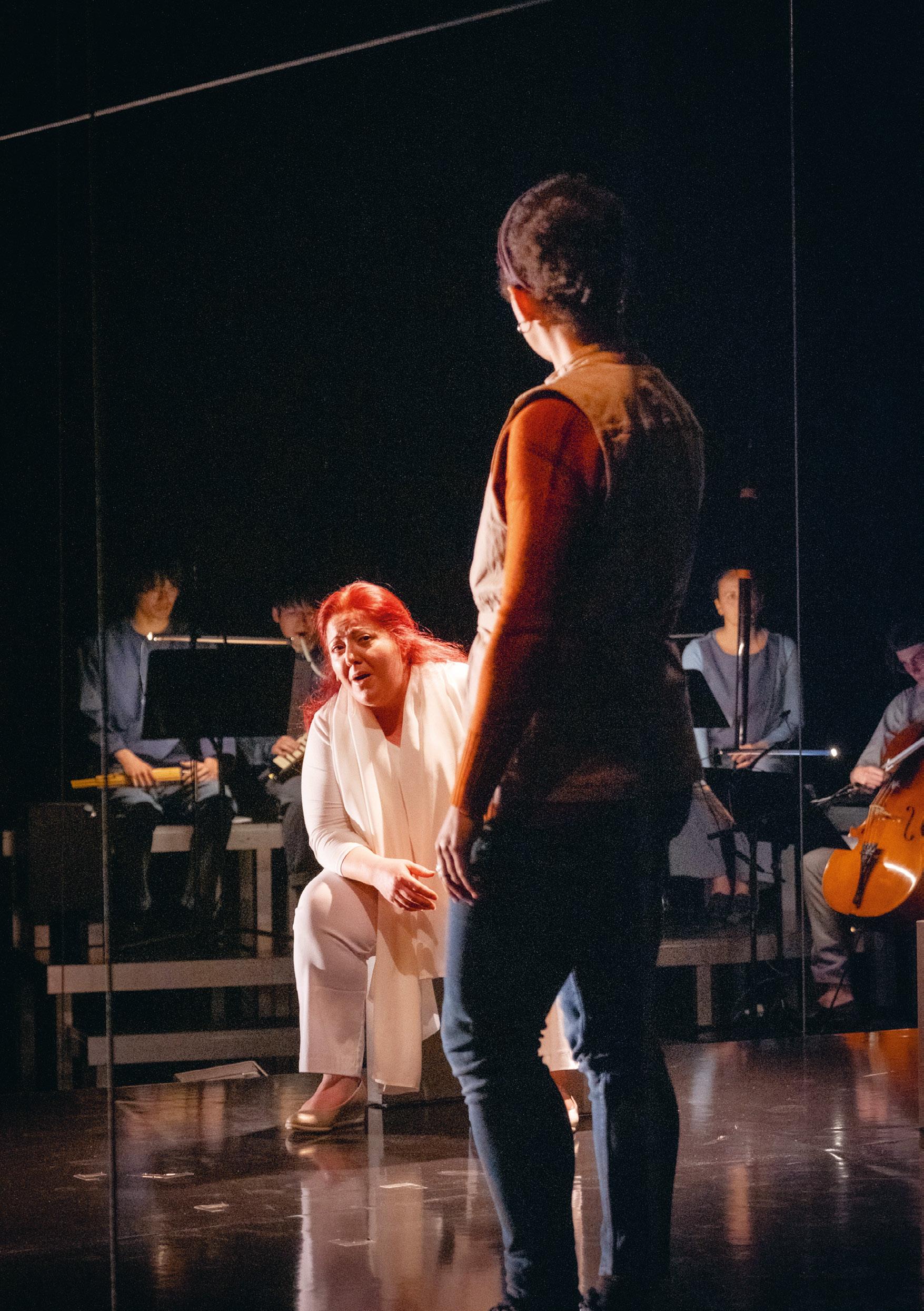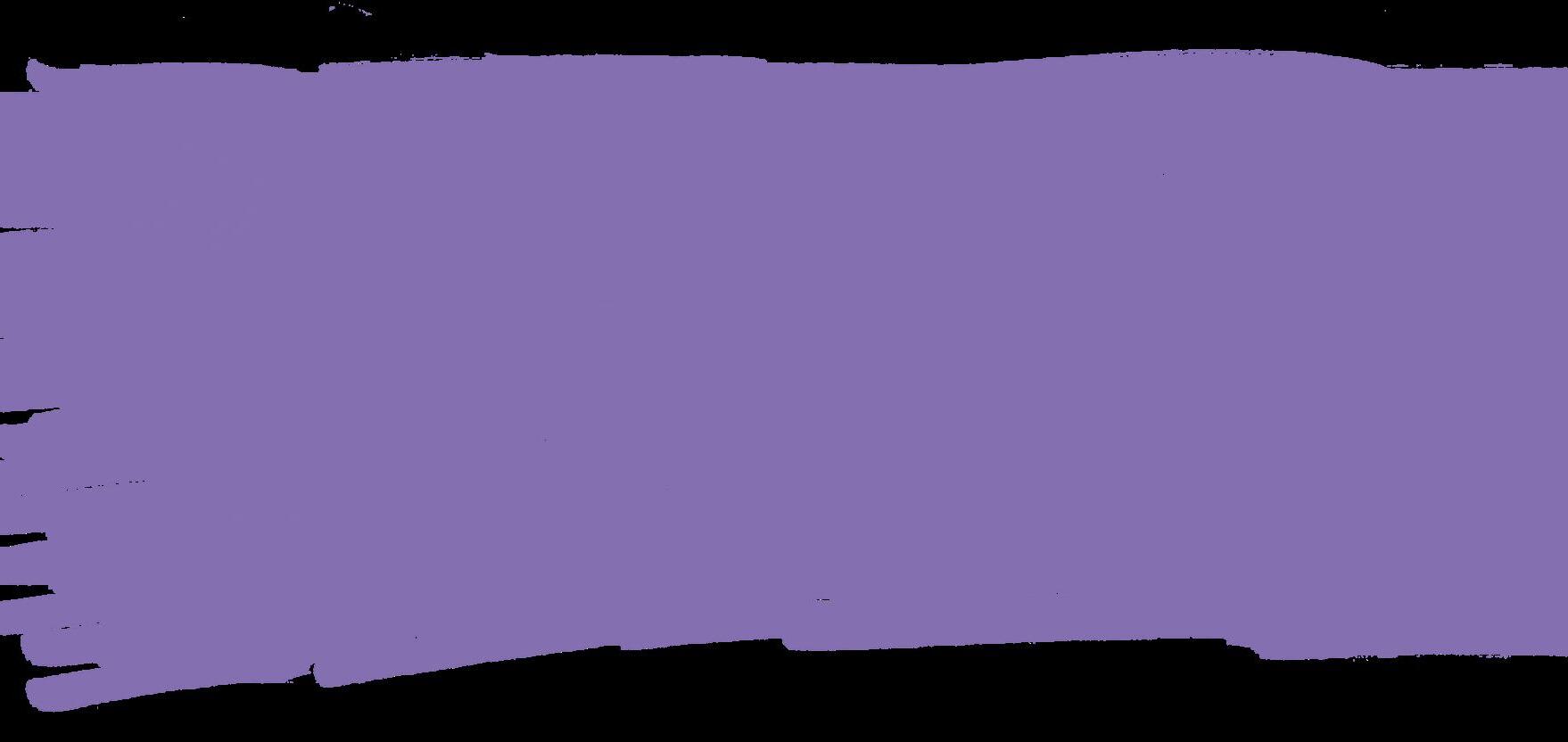

Two women meet in prison: Fatma, a women’s rights activist who was sentenced for murder and Sama, a young, ambitious documentary film maker who wants to tell Fatma’s story. They share memories, experiences, deepest secrets. What does it mean to be free? Is it possible to have greater freedom in prison than outside? Woman at Point Zero is an enthralling multi-media opera about exploitation, emancipation and the perpetual search for freedom, inspired by the novel of the same name by Egyptian writer and feminist Nawal El Saadawi. Combining poetry, documentary evidence and cross-genre music that merges Western and Eastern music traditions, the opera raises a powerful voice of feminism – composed by Bushra El-Turk, member of the Academy Second Modernism.
22 / 23 May, 8 pm
Jugendstiltheater am Steinhof
English and Egyptian Arabic
German and English surtitles
55 min
Age recommendation 14 +
Direction Laila Soliman Music Bushra El-Turk Libretto Stacy Hardy Musical direction Kanako Abe
Scenography Bissane Al Charif Video design Bissane Al Charif, Julia König Repetiteur, Live samples Samir Bendimered Costume Eli Verkeyn Light design Loes Schakenbos Documentary audio fragments Aida Elkashef With Dima Orsho, Carla Nahadi Babelegoto Ensemble Zar with Hyelim Kim (daegum), Miloš Milivojević (accordion), Raphaela Danksagmüller (recorders, fujara, duduk, kaval), Chatori Shimizu (shō), Faraz Eshghi Sahraei (kamānche), Tamaki Sugimoto (cello) Stage management Patrick Vanderhaegen Video design Johannes Ringoot, Brecht Debackere Lights Jamy Hollebeke Sound Carlo Thompson, Guillaume Desmet Production management Liesbet Termont Direction associate Nadia Amin Direction assistance (tour) Barbara T’Jonck Composition assistance Furkan Keçeli Audio editing Nancy Mounir Musical direction assistance Ivan Cheng Translation surtitles Maitane van der Becke (German) Surtitles Lisbet Termont
Production LOD muziektheater (Ghent) Coproduction All Arias (Brughes, Ghent, Antwerpen), Royal Opera House (London), Shubbak Festival (London), Festival d’Aix-en-Provence, Britten Pears Arts (Snape Maltings), Grand Théâtre de la Ville de Luxembourg Supported by enoa (European Network of Opera Academies), PRS Foundation, FEDORA, AFAC (The Arab Fund for Art and Culture), British Council, the Tax Shelter of the Belgian Federal Government
executed by the team of the Wiener Festwochen | Freie Republik Wien
Premiere July 2022, Festival d’Aix-en-Provence
‘I SPIT ON YOU’
Composer Bushra El-Turk and librettist Stacy Hardy in conversation with Jana Beckmann
JANA BECKMANN Woman at Point Zero is based on the novel by the Egyptian writer Nawal El Saadawi. To what extent do you depart from the original setting? In what ways is it an opera about many women who share a similar fate?
STACY HARDY This work is directly in conversation with Nawal El Saadawi’s work, adding other women voices. While it is set in the world of the original novel, we have moved the storyline into a contemporary setting. We also expand a character of the novel: the author, Nawal El Saadawi, almost appears as a character and that role has been developed significantly to bring together voices from different generations. The idea was also to engage with what feminism means for women of different generations living in a patriarchal society. And then also to include documentary voices of women who face the same fate. So, we worked with recordings and interviews that were made with women in contemporary Egypt who were charged for similar reasons. It was important for us that those voices are incorporated directly, becoming a kind of excerpt of sound pieces, and they form much of the script. In terms of the main character voices, they also carry traces of those stories and the emotions they convey.
J.B. You are a mediator of cultures. How is this reflected in the sound world you create for Woman at Point Zero?
BUSHRA EL-TURK Beautiful question. Writing the music for creative musicians from different musical traditions – Japanese, Korean, Persian, Armenian, etc. – not only presents a unique sonic colour palette, but also allows me to blur notation with improvisation. You won’t hear a difference between what is notated and what is
improvised – the singers and musicians have a say in what happens between the notes. Ultimately, I’m ‘giving voice’ to the singers and musicians musically and also through the narrative. I impose the structures and harmonies, which can collide culturally with the idiomatic structures and improvisational journey of each tradition that the music comes from. What’s interesting is that, being rebels of their own traditions, they want to meet me too, so that is important when mediating cultures. The musicians should also want to cross over.
J.B. Woman at Point Zero addresses different kinds of loss. How do you transfer speechlessness to music?
B.E.T. Leaving silences after loss, so that we can contemplate collectively in the spaces between the music. Also, musically, I’ve assigned motifs to the different aspects of loss, which are cyclical in the opera – the loss of innocence, joy and youth, the loss of pleasure, the loss of dreams and beliefs, the loss of trust and friendship.
J.B. Why is it important for you to choose material that deals with social responsibility?
B.E.T. Partly, I am or, more importantly, we the creative team are looking for that space to portray our own realities within the power dynamics of our societies – sometimes in the Western world, but mostly where our heritage lies.
Also, there’s something powerful and moving in reflecting reality on the stage, when performers are singing / speaking the issues that our audiences don’t have the words for – due to fear or trauma or just not having the tools to express them. The total experience of attending a live work stays embedded in our consciousness, because we are witnessing or forming a relationship with the people on stage, possibly sympathising and more so, empathising with their story. Despite it being a story written in the 1970s, its issues remain true today.

‘It’s
not a
matter
of who’s good, who’s bad. It’s a matter of who has the power – who has the power and writes’.
Nawal El Saadawi
PUBLICATION DETAILS Owner, Editor and Publisher Wiener Festwochen GesmbH, Lehárgasse 11/1/6, 1060 Wien P + 43 1 589 22 0, festwochen@festwochen.at | www.festwochen.at General Management Milo Rau, Artemis Vakianis Artistic Direction (responsible for content) Milo Rau (Artistic Director) Text credits The interview was conducted on 5, May 2024 by Jana Beckmann (Dramaturgy Wiener Festwochen | Free Republic of Vienna) Picture credit Cover © Kurt Van der Elst Produced by Print Alliance HAV Produktions GmbH (Bad Vöslau)
Kanako Abe, born in Osaka, based in Den Haag (Netherlands) is a conductor, pianist and composer which is highly acclaimed as a specialist of contemporary repertoire. She premiered more than 160 works in collaboration with worldwide renowned composers and has worked with many conductors. Since her debut as a conductor in 2003, she has been regularly invited to conduct contemporary works performed by the Ensemble L’Itinéraire, the Ensemble Zellig, the Smash Ensemble (Spain), the Festival Octobre en Normandie, the Festival Biennale di Venezia. In recent years, she has presented her works in France, Egypt, Italy, Spain, Korea, Romania, Indonesia and Japan. Kanako Abe has been President of the French-Japanese Association for Contemporary Music since 2013.
Laila Soliman, born in 1981 is an independent Egyptian theatre director and playwright, living and working in Cairo. She studied at the American University in Cairo and obtained her Master of Arts in theatre at Dasarts (AHK) in Amsterdam. Her work stems from an interest in the state of flux in the contemporary socio-political climate and its influence on individuals, relationships, and power structures. It relies on collective memories and personal histories as ways of bridging the gap between the official versions of events and intimate, individual experiences. Her works have been mainly shown in Egypt, Tunisia, Lebanon, Syria and in Europe. Amongst her most important works are The Retreating World (2004), Ghorba, images of Alienation (2006), Egyptian Products (2009), Spring Awakening in the Tuktuk (2010), Lessons in Revolting (2011), Here, There & Everywhere (2013), Hawa ELhorreya, La Grande Maison (2015) and The National Museum of the State Security System (2015). Her latest works include Museum of Lungs (2018) and My Body Belongs To Me (2019).
Bushra El-Turk is a British Lebanese composer who has written over 60 works for the concert hall, the stage, film, TV and live art performance. In her trans-cultural projects, Western and Eastern music traditions merge seamlessly and the boundaries between traditional performance techniques, improvisation and contemporary sounds become non-existent. Bushra El-Turk’s works have been performed by the London Symphony Orchestra, the BBC Proms and BBC Symphony Orchestra and renowned ensembles across Europe, at venues such as the Royal Opera House, the Lincoln Centre, the Théâtre du Châtelet Paris, Festival Aix-en-Provence among many others. Her opera Woman at Point Zero won the Fedora Prize for Opera Innovation in 2020 and the Music Theatre Now Competition in 2023.
Comprised of up to 14 of the UK’s finest musicians, Ensemble Zar is a fresh and fearless crossgenre ensemble whose mission is to express the Middle Eastern artistic temperament in its rawest form, and experiment with new sounds in the process. Its musicians are well-versed in both Eastern and Western idioms, culminating in Western and Asian instruments, equally at home performing complex written contemporary music as well as masters of improvisation, relishing in the spontaneous nature of Oriental music.


Main sponsors
Public sponsor

Mobility partners

